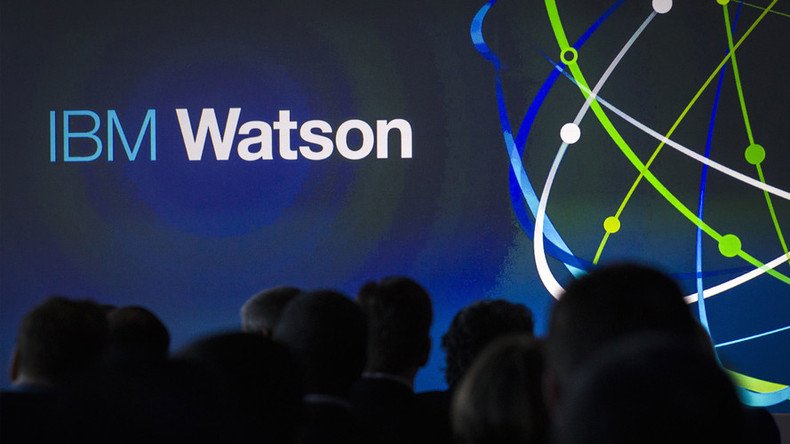Elementary? Robot ‘Dr Watson’ diagnosed rare leukemia after medics fail to find it

Another step has been taken towards our computer overlords reigning supreme after artificial intelligence saved a woman’s life. IBM’s cognitive computer Watson successfully diagnosed her with a rare form of leukemia which doctors had not detected.
After diagnosing a patient with acute myeloid leukemia, doctors at Japan’s University of Tokyo’s Institute of Medical Science were left dumbfounded when the woman wasn’t responding to treatment.
This is when they turned to IBM’s supercomputer, Watson, who, after being fed the 60-year-old’s genetic information, was able to compare her makeup with 20 million clinical oncology studies.
A mere ten minutes later, the computer pointed to a different form of leukemia as being the root cause and recommended another treatment, which proved successful, according to NDTV.
Satoru Miyano, a professor involved in the case, said Watson’s ability to make the correct diagnosis was proof that that AI has the potential "to change the world."
Created in 2011 and named it after the company’s first CEO, Thomas J. Watson, it’s not only medical science that Watson has conquered.
Watson is a cognitive computing system which tries to mimic how the human brain works through self-learning. It does this by mining vast amounts of data, recognising patterns and by processing language in the hope of producing solutions quicker than man can on his own. The ultimate goal being for systems like Watson to produce solutions to problems without any human interaction.
The computer made easy work of the game show Jeopardy, knocking out Ken Jennings, who had won an impressive 74 consecutive times on the show, to secure the $1 million prize.
There are a number of obstacles to overcome though before robot doctors will be doing the daily rounds in hospital.
To detect rare illnesses, there needs to be a body of clinical studies for Watson to analyze and then compare a patient with, which is a problem for ailments not yet studied in great depth.
The machine would also need access to vast amounts of DNA repositories, which in turn creates issues around privacy and the security of such data.
While such issues are being ironed out, IBM have said the powerful analysis Watson is capable of is something which would be of great use to help government vendors bid for military contracts by enabling it to navigate the wealth of federal procurement rules.
READ MORE: Procurement, my dear Watson: US Air Force turns to computer to manage shopping












